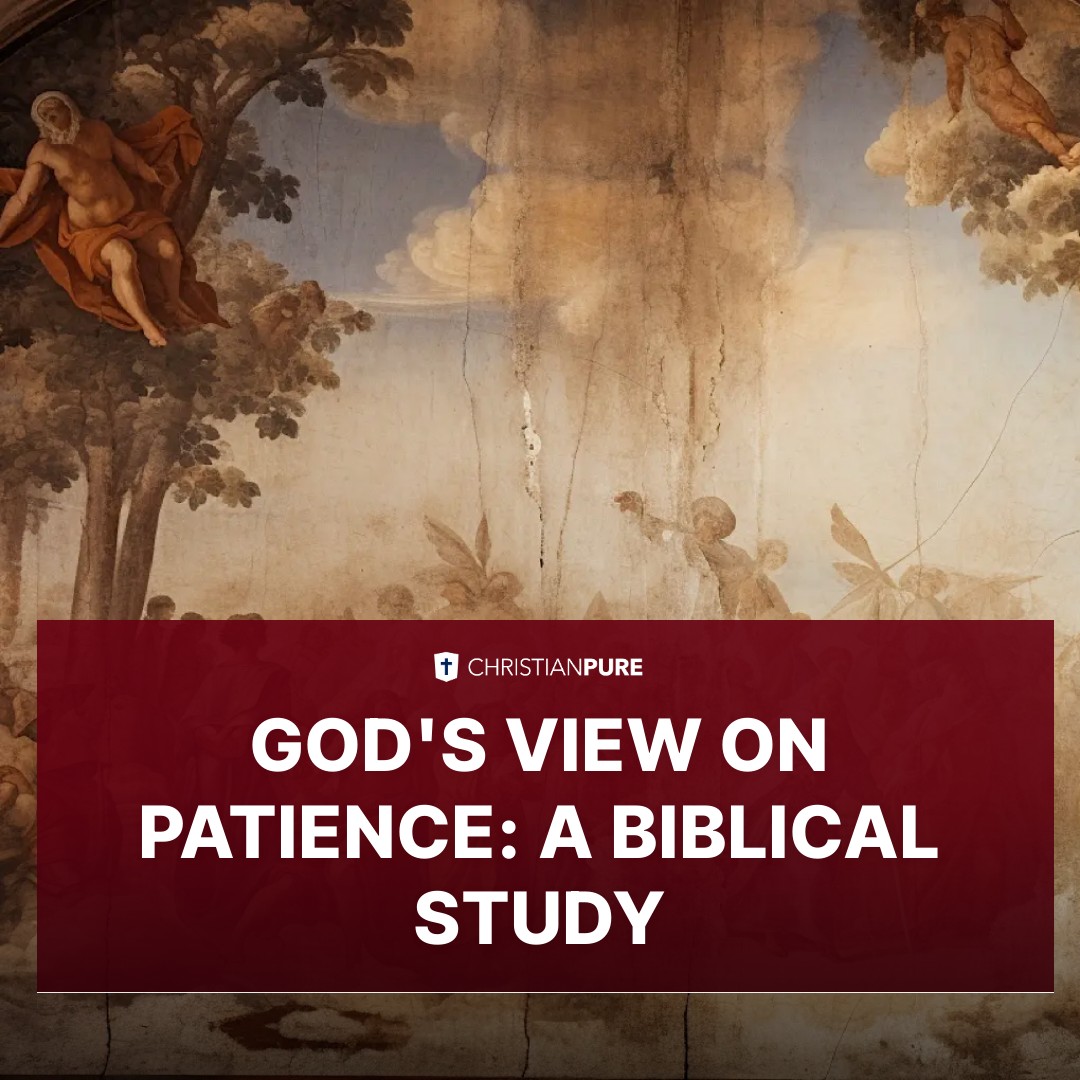Grappling with enigmatic stories and dissecting age-old lore, we often find ourselves yearning to peer beyond the veil of time. And amongst the mysteries shrouded in antiquity, none is more captivating than the quest to reconcile the celestial tales of the Garden of Eden with our understanding of the corporeal world. A utopian paradise, a cradle of human inception, and the setting of our collective fall from grace; the Garden bears profound significance in our quest to comprehend our origins.
“The Lord God planted a garden eastward in Eden, and there He put the man whom He had formed.” - Genesis 2:8
Where does this garden lie? Is it concealed in the forgotten corners of our blue planet, waiting to be discovered? Or has it vanished from the material world, yet still exists in an ethereal form beyond our perception? Could it, perhaps, even be a metaphorical illustration, a spiritual landscape rather than a physical one? From speculation on the Garden’s geographical whereabouts, to ponderings on its possible existence today, we will plunge into the captivating enigma that is the Garden of Eden.
- What occurred in this celestial haven?
- Where may one find Eden in the world today?
- Does it still inhabit our reality, obscured and unscathed?
Thus, hold your breath as we embark on an enriching expedition – not necessarily to find an atlas-marked location, but to discover intellectual treasures. Let us, for a moment, be both the historian and the detective, enthralled by the prospect of unraveling a myth as old as mankind itself, and as enduring as our innate curiosity.
Are there any clues about the location of the Garden of Eden in the Bible?
In the sacred text of the Bible, more specifically in the book of Genesis, we find the earliest mention of the Garden of Eden. The text provides certain geographical pointers that indicate the presence of Eden at the conjunction of four rivers. These rivers, namely the Pishon, Gihon, Tigris, and Euphrates, extend an exquisite understanding of this paradisiacal location. While the Tigris and Euphrates rivers are identified in the present-day region extending through Iraq and Turkey, the origins of Pishon and Gihon remain immersed in deep controversy.
The idyllic Garden, as portrayed in Genesis, was enriched with all kinds of tree, ravishingly pleasant to the sight and good for food. This description invokes speculation about a lush, temperate climate, with abundant availability of water, conducive to growth and sustenance. This perception is further emboldened by the mention of God taking a stroll in the garden during the cool of the day. The precise location, however, has been an ever-persistent enigma in theological and geographical landscapes.
While tracing this biblical account of the Garden of Eden, we also grapple with the understanding that Eden could have been more than just a geographical location. It is narrated as a transcendent abode of mankind's perfect communion with the divine. As such, these geographical details could possibly be interpreted on a metaphysical level, incorporating a deeper spiritual truth within the context of the physical world.
Summary:
- The Book of Genesis mentions the Garden of Eden residing at the intersection of four rivers: Pishon, Gihon, Tigris, and Euphrates.
- The rivers Tigris and Euphrates are identifiable today, adding credence to the Eden narrative, but Pishon and Gihon's exact routes remain unknown.
- The Garden of Eden was described as a lush realm filled with various trees, suggesting a temperate climate with abundant water for growth and sustenance.
- Understood as both physical and spiritual, it's important to regard Eden as a place of divine and human harmony, possibly framing the geographical clues as metaphysical points in a broader spiritual perspective.
Does modern science have any theories about the Garden of Eden's location?
Indeed, the march of science has not left the Garden of Eden untouched. Science, with its investigative propensity, has ventured into uncharted terrains to offer certain theories about Eden's location. One such theory points towards Africa as the possible abode of Eden. This conjecture stems from the prevalent scientific belief in Africa as the cradle of humanity. Here, it should be noted that although there is a compelling argument associating Africa with Eden, it is not a universal concurrence. Facts remain nebulous, and landscapes have transformed drastically over millennia, thereby obfuscating our understanding of ancient geographical descriptions.
The Genesis account delineates the geography of Eden as a place where four rivers meet: the Pishon, Gihon, Tigris, and Euphrates. Touching upon this description, a popular theory elucidates that the Garden of Eden might have been located in Mesopotamia, where the Tigris and Euphrates flow. Nonetheless, such an assertion woefully overlooks the disastrous outcomes of the Great Flood, which most likely annihilated the original geography.
More radical scientific approaches stake claim on transposing the mythological garden into a metaphorical paradigm, challenging concrete, geographical interpretations. These inclinations veer towards the idea that the Garden is more a state of existential harmony than a specific location—one that encapsulates the primal connection between man and nature, rather than a set of GPS coordinates. In such a lens, Eden transgresses physical boundaries and asserts a universal resonance.
This dialogue between theology and modern science is not only intricate but often paradoxical, hoisting a veil of an enduring enigma around the Garden of Eden. While science can give us theories and conjectures, it operates within a realm of empirical data and observations. The Garden of Eden, as it stands today, is a mystery—perhaps as elusive as the origin of life itself, the quintessential unknown.
Summary:
- Modern science has posited theories about the Garden of Eden's location, one of them pointing towards Africa, considered science's cradle of humanity.
- The biblical description of Eden as the convergence point of four rivers suggests that it could have been located in Mesopotamia, where the Tigris and Euphrates rivers flow.
- Scientific perspectives also see the Garden of Eden as a metaphorical space that symbolizes man's primeval connection with nature, rather than a geographical location.
- The interaction between theology and science regarding Eden's location illuminates its enduring enigma – one of the greatest mysteries of our existence.
What are the most popular theories about the fate of the Garden of Eden?
The fate of the Garden of Eden, much like its actual location, provokes extensive theological and scholarly debate. According to some interpretations, the Garden was destroyed when Adam and Eve were expelled following their transgression. This assertion stems from interpretations of Genesis 3:23-24, where God drove the original couple from Eden, placing cherubim and a flaming sword at its entrance, barring human return. Consequently, the Garden—an earthly paradise—would gradually crumble without human nurturing and divine occupancy.
Opposing this, some expositions propose that the Garden still exists, though inaccessible and hidden from humanity. This viewpoint aligns with the thought that the Garden remains immaculate, preserved by divine fiat. Yet others envisage it as a metaphysical or spiritual space rather than a physical one. Here, the Garden represents a symbolic region of sinless existence, offering profound theological insights into human origin and spiritual aspiration.
Altogether, the fate of the Garden of Eden remains an enigma,n ensared in the deep, interwoven tapestry of religion, mythology, history, and belief. Answering the questions may transcend human comprehension, possibly hinging more on faith than empirical evidence.
Summary:
- One interpretation posits that the Garden of Eden was destroyed following the expulsion of Adam and Eve.
- Alternatively, some theories suggest the Garden of Eden still exists, albeit inaccessible and hidden.
- Another school of thought envisions the Garden as a metaphysical or symbolic space of original perfection and innocence.
- Ultimately, the exact fate of the Garden of Eden is an enigma intertwined in the vast complexity of religious, historical, and mythological narratives.
Are there any archaeological findings related to the Garden of Eden?
As a scholar immersed in this interest, I find a profound sense of intrigue in the prospect of archaeological evidence that could point to the Garden of Eden. This potential intersection of science and faith is a veritable kaleidoscope of possibilities, each twist potentially unearthing a new perspective. However, the journey to the past often requires a step into the realm of uncertainty.
Despite the various arguments and theories pointing towards Africa, Armenia, and other locations, no archaeological evidence definitively links any particular site to the Garden of Eden as described in the Bible. The reason for this is twofold: firstly, the extensive time span since the supposed existence of the Garden makes physical evidence elusive; secondly, the ambiguity and symbolic nature of the biblical descriptions. The Bible describes a paradise that stood at the confluence of four rivers, two of which are the Tigris and the Euphrates. Yet, locating an exact geographical region based on these descriptions has posed an arduous task.
One must also consider the theological implications of such a discovery. From a religious viewpoint, many believe the garden was not a physical location. Instead, it was a state of innocence and communion with God, the loss of which symbolizes humanity's original sin. This interpretative angle further complicifies any attempts towards archaeological verification.
In 2019, a study suggested that Eden would have been located in Botswana, south of the Zambezi River, based on genetic studies and geological evidence of a lush, lake-filled past. This provides yet another strand in the already complex tapestry of Eden's possible locations. However, these inferences are highly speculative and more based on scientific conclusions rather than archaeological findings.
Summary:
- No conclusive archaeological evidence has been found linking any specific location to the Garden of Eden.
- The biblical descriptions of Eden's location are ambiguous and subject to various interpretations.
- Many interpret the Garden not as a physical location but a metaphorical state, complicating archaeological verification.
- Scientific theories, like the 2019 hypothesis suggesting Eden's location in Botswana, are based more on genetic and geological evidence than archaeological findings.
- The search for Eden's location continues, guided by the combined efforts of science, theology, and history.
How have interpretations of the Garden of Eden's location changed over time?
As time has passed, the interpretations regarding the exact location of the Garden of Eden have undergone significant shifts, with varying theories backed by different cultures, theological perspectives, and scholarly interpretations. In the early ages, many held a more literal view, placing Eden somewhere on the Earth based on Biblical descriptions.
The Book of Genesis describes four rivers surrounding the supposed location, leading many to argue that these undoubtedly point to a geographical space. Indeed, there are those who have equated the rivers Pishon and Gihon mentioned in Genesis to the present-day Ganges and Nile. Yet, this argument is countered by the vast geographical distance that separates these rivers, raising doubts about the veracity of the correlation.
Likewise, there is a line of thinking that places the Garden of Eden within the realms of Armenia, with the claim that the Armenian highlands, which dip into Mesopotamia from the north, correspond to Biblical textual descriptions. These interpretations, while speculative, have shaped our collective understanding of Eden and its potential location over time.
However, alongside these more geographical interpretations, over time there has been a growth in metaphorical or symbolic interpretations of Eden. This view regards the garden not so much as a tangible terrestrial location but rather a paradisiacal state of being or a spiritual place of nearness to God. It accords with the evolution of many religious interpretations that have steadily shifted from literal to more allegorical readings of scriptures. In this perspective, the quest for a physical Garden of Eden may be less relevant than the pursuit of the spiritual truth it symbolizes.
Summary:
- The interpretation of the Garden of Eden’s location has changed over time, from literal geographical theories to more allegorical and spiritual ones.
- Early interpretations often attempted to pinpoint a geographical location for Eden, with theories suggesting places like the area between the Ganges and Nile rivers or the Armenian highlands.
- Many of these geographical interpretations have been contested due to inconsistencies and vast distances between proposed locations.
- In recent times, interpretations have increasingly veered towards understanding the Garden of Eden as a symbolic or spiritual realm rather than a physical location.
Are there any cultural or historical sites claiming to be the Garden of Eden?
Throughout the centuries, various cultures and historical sites have laid claim to being the original location of the Garden of Eden. One fascinating claim, for instance, is from the small town of Gobekli Tepe in modern-day Turkey. This site, unearthed in 1994, is home to some of the world's oldest known temples, estimated to date back nearly 11,000 years. While there is no concrete evidence associating it with Eden, the site's ancient history, coupled with its sophisticated structures and artworks, evoke in many a sense of primitive paradisiacal splendor that resonates with the Edenic lore.
Another claim comes from the heart of Iraq, where the Tigris and Euphrates rivers meet - a region known as Mesopotamia. This has long been considered a possible location for Eden due to the Bible mentioning the rivers as flowing out of the Garden. A cultural site in this region is Eridu, an ancient Sumerian city considered by many as the earliest city in the world. Its historical significance and regional context have contributed to its association with Eden.
Lastly, regarding Africa's stake in this matter, intriguing propositions have emerged from Botswana, particularly in the Kalahari Desert. The 2019 study suggesting that this region could possibly represent the biblical paradise has brought international attention to it. Cultural artifacts and indigenous tributes celebrating the land's life-sustaining capabilities may point to early human appreciation for a paradise-like existence.
Nonetheless, the fact remains that none of these sites can provide definitive proof of their Edenic claim. Yet their connection to the Garden, symbolically or theoretically, continues to fascinate us, stirring our quest for understanding and fueling our imaginations.
Summary:
- Various locations across the world, including Gobekli Tepe in Turkey, Eridu in Iraq, and the Kalahari Desert in Botswana, have been suggested as possible locations for the Garden of Eden.
- These claims are often based on biblical references, ancient cultural artifacts, historical significance, or compelling geographical similarities to the Eden's description.
- Despite these fascinating claims, none can conclusively prove their Edenic association due to the lack of definitive evidence.
- The ongoing quest to locate Eden reflects our intriguing fascination with this biblical paradise and its enduring influence on our collective imagination.
What are the challenges in finding the exact location of the Garden of Eden?
Unearthing the precise location of the Garden of Eden, as portrayed in the Bible, exposes a myriad of challenges—ranging from interpreting ancient texts, aligning it with geological data, and grappling with deep-rooted theological beliefs. Many have tried, but the elusive Garden plays hard to get, and it's not just a simple matter of decoding ancient scripture or understanding ambiguous topography—it's far more complex.
Firstly, we encounter the challenge with interpretation. The Bible, predominantly the Book of Genesis, offers limited and rather ambiguous information regarding Eden's geography. It describes the existence of four rivers—Pishon, Gihon, Tigris, and Euphrates—converging in Eden. Some scholars argue that these could dictate Eden’s location, with the latter two flowing through modern-day Iraq, but confusion arises with Pishon and Gihon’s identities. They may be metaphorical, not literal, further complicating the situation and placing us in a labyrinth of interpretation.
We also grapple with the gaping lacuna between biblical accounts and scientific evidence. Geological and archaeological data don't seamlessly align with biblical narrations, and much of the landscape described in Genesis was likely drastically altered by cataclysmic events such as floods. It's therefore likely that Eden, if it possessed a literal physical location, might have experienced profound geographical transformations making it barely recognizable or perhaps completely obliterated.
Furthermore, the theological hurdle cannot be ignored. The search for Eden isn't purely an archaeological or geographical endeavor. It's deeply tied to one's interpretations of faith, religious texts, and tenets of theology. For many devout followers, Eden exists more as a spiritual construct, steeped in symbolism and metaphors, than a physical entity. It represents the start of mankind, and the loss of innocence, not necessarily a map dot.
Thus, finding Eden encompasses far more profound questions about human existence, faith, and interpretation of sacred texts, proving a hall of mirrors rather than a straightforward search for a lost biblical terrain. It's a compelling mystery unsolved—one that continues to captivate our collective imaginations and invites introspection on the human spiritual journey.
Summary:
- The biblical text furnishes elusive information about Eden's geographical specifics, making interpretations challenging.
- The mismatch between biblical accounts and scientific evidence, plus geographical transformations, adds to the enigma.
- The search for Eden is also inherently a theological quest, with the Garden representing more of a spiritual construct rather than a physical landmass for many.
- The quest for Eden begs introspection on our spiritual journey and the essence of human existence, rather than being a mere geographical hunt.
What impact would finding the Garden of Eden have on modern society?
Discovering the Garden of Eden would indeed have profound effects on the modern world. It could ignite a great revolution of thought, shedding light on questions about spirituality and religion that have mystified human beings since the dawn of humanity. Yet, the potential impact is also manifold, bearing ramifications for science, religion, and society.
On one hand, the scientific community would thrive on this finding. It could offer unprecedented insights into the planet's past ecology, the nature of our early human ancestors, and the evolutionary processes that have shaped us. Such an ancillary discovery could even help us predict potential future trajectories and crises, thus enabling us to navigate our narrative more effectively.
In terms of religion, the Garden of Eden's discovery could serve to reaffirm the faith of many believers by providing tangible, physical confirmation of a narrative central to the origins of humanity as depicted in the Bible. However, it's important to understand the delicate balance that must be struck here. While such a discovery could bolster belief for some, it may also incite discord amongst faiths and denominations, depending on how - and to whom - the narrative of this discovery unfolds.
Societally, the unearthing of Eden may foster a renewed sense of awe and humility in us. As stewards of our planet, the enormity of discovering this ancient garden may invoke a profound sense of responsibility to respect and protect Earth's diverse ecosystems, for they are, in essence, our celestial Eden.
Yet, as captivating as this potential discovery may be, it's imperative to remember that Eden was more than a physical locale. Its narrative represents the spiritual truth of humanity's inherent possibility and potential for union with the divine. As such, even if the Garden were found, its true significance resides within our hearts, encouraging each of us to seek that Eden within ourselves.
Summary:
- Uncovering the Garden of Eden will have massive implications on science, providing profound insights into our planet's past ecology, early human history, and evolution.
- The discovery could reinforce the faith of many believers by providing concrete evidence of a pivotal biblical narrative. However, it could also provoke discord depending on the interpretation and dissemination of the discovery.
- On a societal level, it could inspire a renewed sense of respect and responsibility towards our environment as a symbolic Eden of the Planet.
- The Garden of Eden, beyond a physical location, represents a spiritual archetype that encourages the pursuit of inner harmony and spiritual advancement.
Facts & Stats
The Garden of Eden is mentioned 16 times in the Bible
The Tigris and Euphrates rivers, mentioned in the biblical description of Eden, are real rivers that exist today in Iraq
In a 2016 survey, 56% of Americans believe that the Garden of Eden was a real place
The city of Tabriz, Iran, has been suggested as a possible location for Eden by some scholars
The Seychelles Islands in the Indian Ocean have also been proposed as a possible location for Eden
The term 'Garden of Eden' is used over 2,000 times in literature and popular culture
In a 2018 survey, 65% of Israelis believe that the Garden of Eden was a real place




















